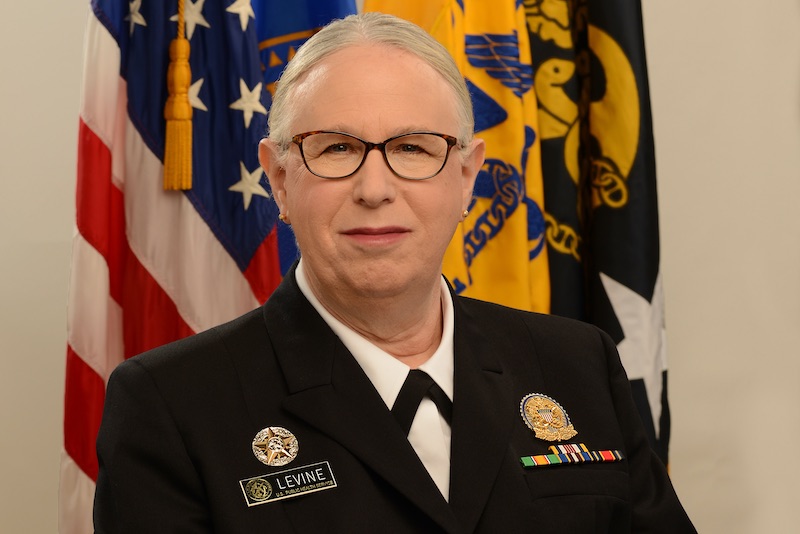Will PrEP Stay Free? Supreme Court to Decide
Christian employers challenged the constitutionality of provisions in the Affordable Care Act requiring coverage for preventative services.

The U.S. Supreme Court has agreed to hear a lawsuit challenging the constitutionality of provisions in the Affordable Care Act mandating that insurance companies provide coverage for preventative care services, including access to pre-exposure prophylaxis (PrEP) to protect against HIV infection.
The lawsuit, brought in 2020 by the Texas-based, Christian-owned business Braidwood Management, Inc., challenges the ACA’s mandates to cover PrEP and testing for sexually transmitted diseases, which the owners feel encourages immoral conduct, including extramarital and premarital sex, as well as homosexuality.
Braidwood has claimed that the requirement to have their employee insurance plans cover preventative treatments like PrEP forced the company to condone conduct it deems objectionable, arguing that the provision of such coverage “encourage[s] homosexual behavior prostitution, sexual promiscuity, and intravenous drug use.”
The company also maintains that requiring Christian employers to provide such coverage violates their rights under the 1993 Religious Freedom Restoration Act, which prohibits the government from significantly burdening a person’s religious exercise.
In September 2022, Judge Reed O’Connor, of the U.S. District Court for the Northern District of Texas, ruled that the requirement to have employer-sponsored health insurance plans cover PrEP violated Christian employers’ rights.
In March 2023, O’Connor went further, ruling that insurers do not have to comply with recommendations made by the U.S. Preventive Services Task Force, a body that determines which preventative treatments should be covered by insurance, without passing on additional costs to health care consumers.
The task force had previously determined that PrEP — due to its effectiveness in preventing HIV — should be one such treatment covered without requiring additional out-of-pocket expenses.
As part of that ruling, O’Connor issued an injunction blocking the federal government from trying to enforce those recommendations, ruling that the task force was illegally appointed because its members must be directly appointed by the president as required by the Constitution’s Appointment Clause.
Upon appeal, the 5th U.S. Circuit Court of Appeals upheld O’Connor’s ruling. The ruling blocked only the mandates as they applied to Braidwood and other similarly situated Christian employers.
However, both the plaintiffs and the Biden administration argued that the 5th Circuit’s finding set the stage for another party to sue in an attempt to block the mandates nationwide, and both sides asked the Supreme Court to take up the case.
The Supreme Court has since said it will review the constitutionality of the ACA’s no-cost coverage mandates.
While a ruling overturning the mandates would not necessarily threaten the existence of the Affordable Care Act, it could force Americans to assume the burden of paying thousands of dollars out of pocket to cover the costs of preventative care.
Besides PrEP, other examples of such treatments that would no longer be offered free of charge include heart statins, various cancer screenings, prenatal nutritional supplements, and physical therapy for older Americans to help prevent falls.
The Biden administration estimates that such preventative treatments save between 10,000 and 20,000 lives per year.
PrEP is particularly important in reducing HIV, and has been adopted by public health departments throughout the U.S. as an important tool in curbing the spread of the disease.
While it does not prevent other sexually transmitted infections (STIs), those on PrEP are often required to go through a regular protocol of screenings to determine how they are responding to the medication.
Those screenings include tests for additional STIs, meaning individuals receiving PrEP are more likely to detect the presence of any STI antibodies in cases of infection and obtain timely medical treatment.
If the high court decides to scuttle the ACA no-cost mandates, the extra costs for preventative services would mean that poorer individuals, working-class Americans, and those living on fixed incomes would have to forego such care.
As a result, they can potentially risk becoming afflicted with deadly illnesses or ailments that could otherwise have been detected and may have to shell out tens of thousands of dollars — much more than the cost of preventative care — to treat more serious health problems due to delayed diagnoses.
“Even modest out-of-pocket costs mean that people don’t end up seeking out these services,” Zachary Baron, a director of the O’Neill Institute’s Center for Health Policy and the Law at Georgetown University, told CNN. “They end up pushing things off as they’re trying to juggle various bills.”
Support Metro Weekly’s Journalism
These are challenging times for news organizations. And yet it’s crucial we stay active and provide vital resources and information to both our local readers and the world. So won’t you please take a moment and consider supporting Metro Weekly with a membership? For as little as $5 a month, you can help ensure Metro Weekly magazine and MetroWeekly.com remain free, viable resources as we provide the best, most diverse, culturally-resonant LGBTQ coverage in both the D.C. region and around the world. Memberships come with exclusive perks and discounts, your own personal digital delivery of each week’s magazine (and an archive), access to our Member's Lounge when it launches this fall, and exclusive members-only items like Metro Weekly Membership Mugs and Tote Bags! Check out all our membership levels here and please join us today!


























You must be logged in to post a comment.